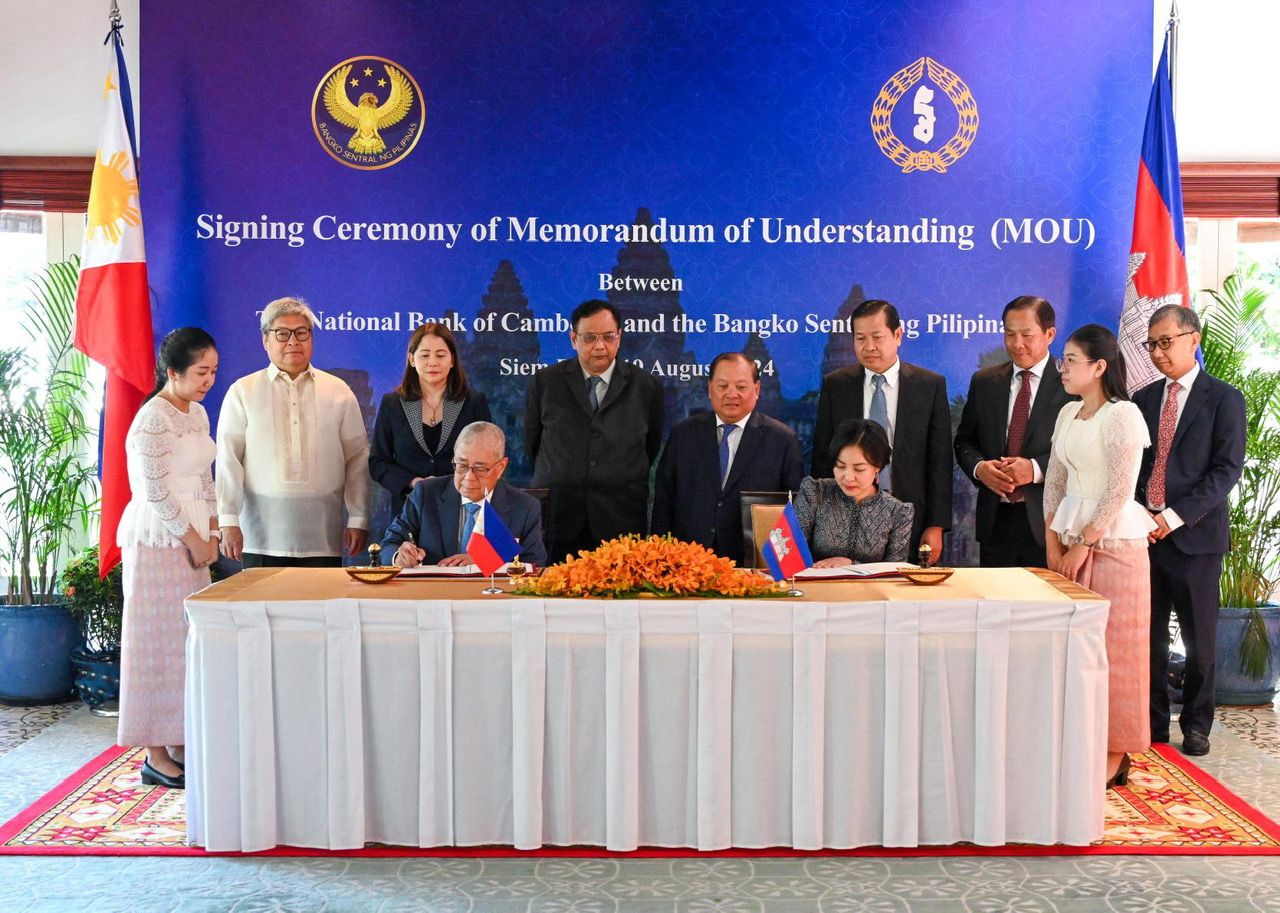The Bangko Sentral ng Pilipinas (BSP) and the National Bank of Cambodia (NBC) agreed to fortify its cooperation and forge stronger bilateral ties in the areas of cybersecurity, payment systems, and digital innovation.

In a joint statement Tuesday, Aug. 20, the two central banks announced that on Monday, they signed a memorandum of understanding (MOU) for a closer cooperation. The MOU was signed in Siem Reap in Cambodia, led by BSP Governor Eli M. Remolona Jr. and H.E. Dr. Chea Serey, the NBC Governor.
The BSP and NBC said that after the MOU was signed, a “high-level bilateral meeting” followed where the two central banks “exchanged views on recent macroeconomic and financial developments and outlook, payment system developments, artificial intelligence, cybersecurity, and sustainable finance.”
The two central banks talked further about expanding the cooperation on these crucial areas.
The BSP said the MOU signified the “willingness and commitment of both the BSP and NBC to provide a clear framework for the facilitation of bilateral ties and the enhancement of cooperation between the two central banks which have had a history of collaboration in both bilateral and regional fronts.”
In addition, the stronger cooperation agreement is expected to promote more collaboration especially in the areas of central banking, payment connectivity and innovation, digital financial innovation, banking supervision, human resource development, and “other areas of mutual interest,” said the BSP.
In the payment connectivity sector, central banks in the region have been strengthening ties after the pandemic.
In April this year, a total of eight central banks in Southeast Asia are participating in the Regional Payment Connectivity Initiative (PRC) for an inclusive cross-border payment system,l.
The banks involved include the BSP and the central banks of Indonesia, Malaysia, Singapore, Thailand, Vietnam Brunei Darussalam and Lao PDR.
RPC intends to promote a “faster, cheaper, more transparent” inclusive cross-border payments in the region. The objective is to strengthen the central banks’ ability “to foster and accelerate the development of payment connectivity in the region through, among others, quick response (QR) code-based payment and fast payment modalities.”
“The regional effort also allows participants to reap the benefits of cross-border economic activities, including providing small and medium-sized enterprises access to the international market, easing of trade, and facilitating worker remittance transactions,” according to BSP et al.
The BSP and the other central banks are planning for the RPC to eventually include other economies in Asia or outside of ASEAN.